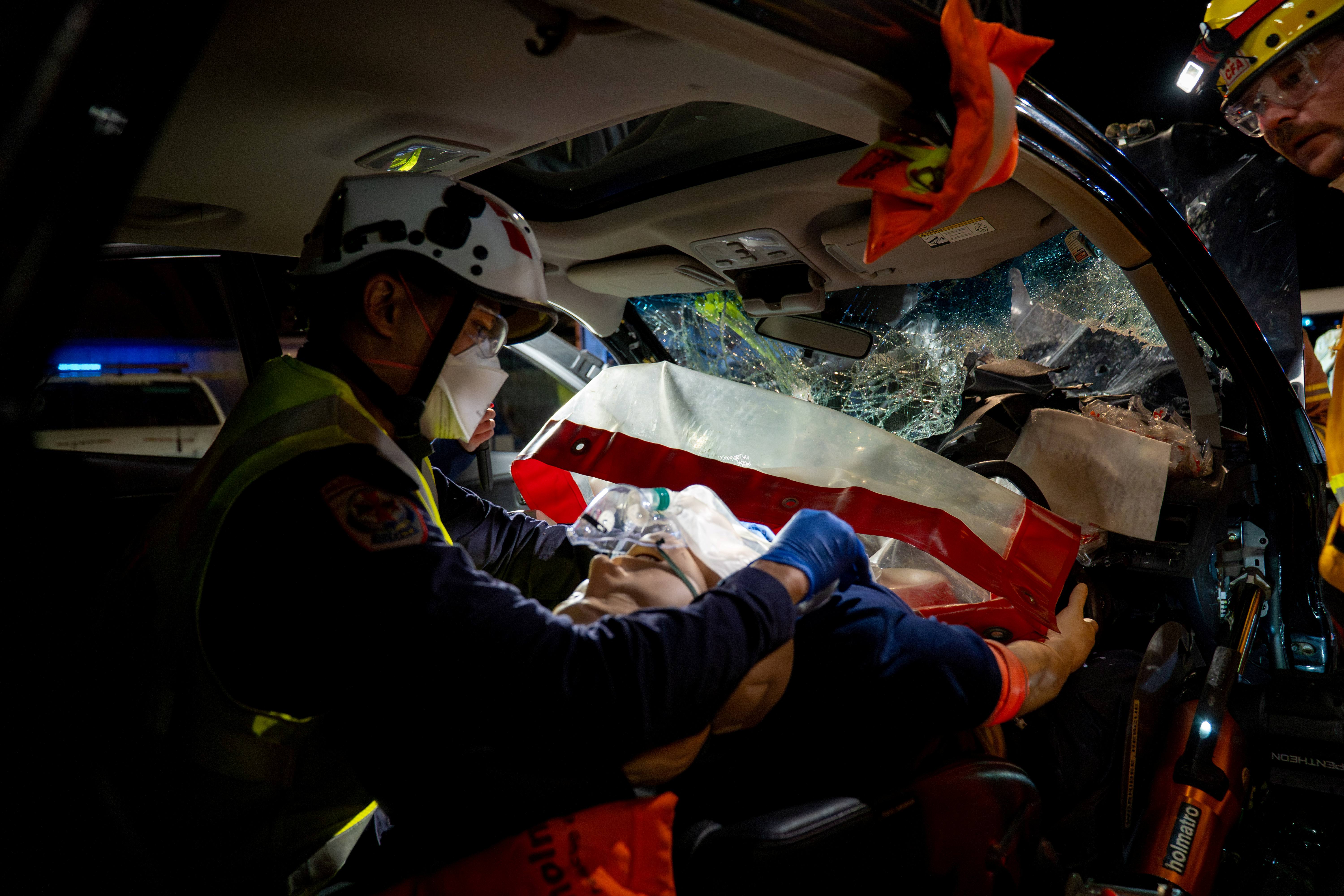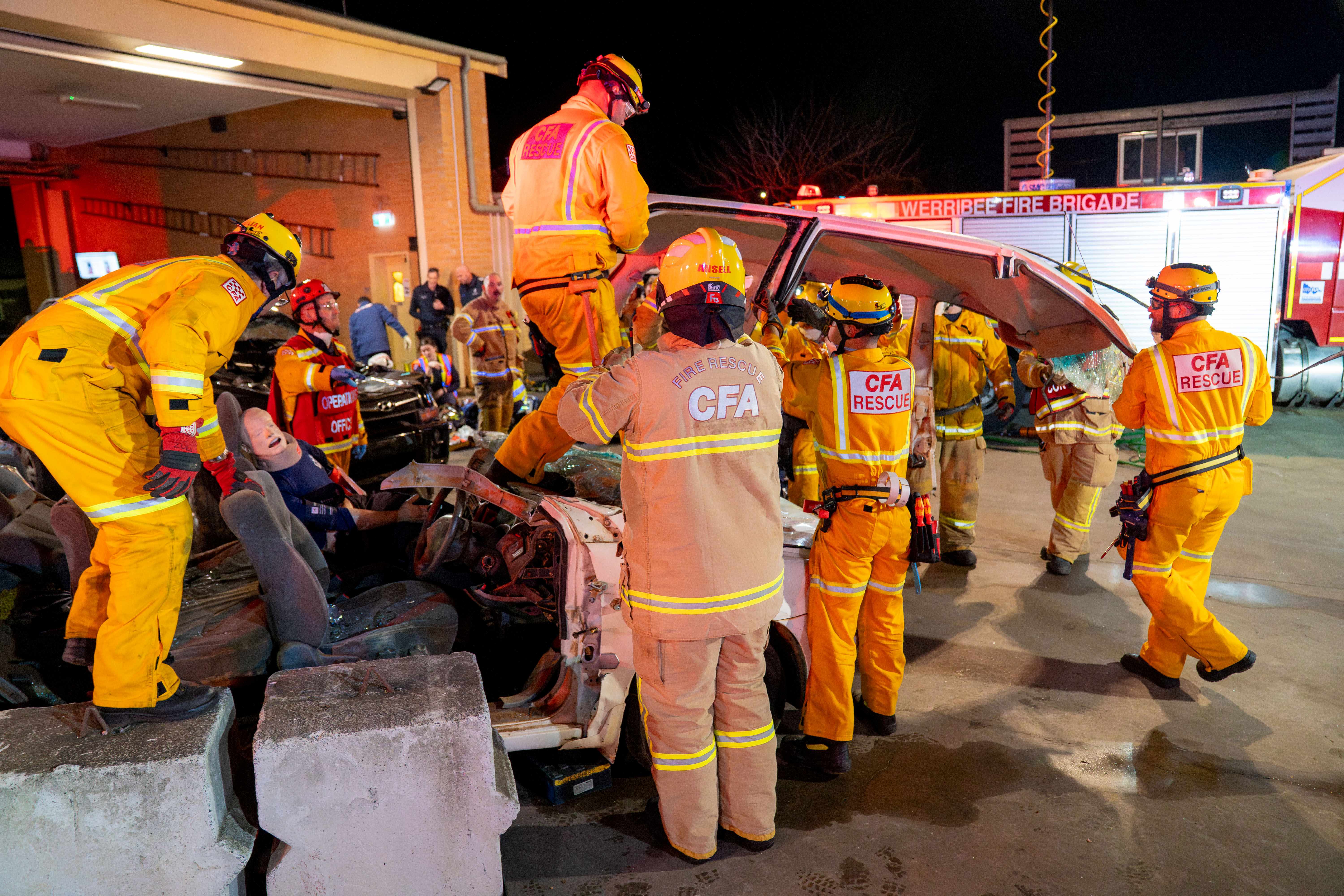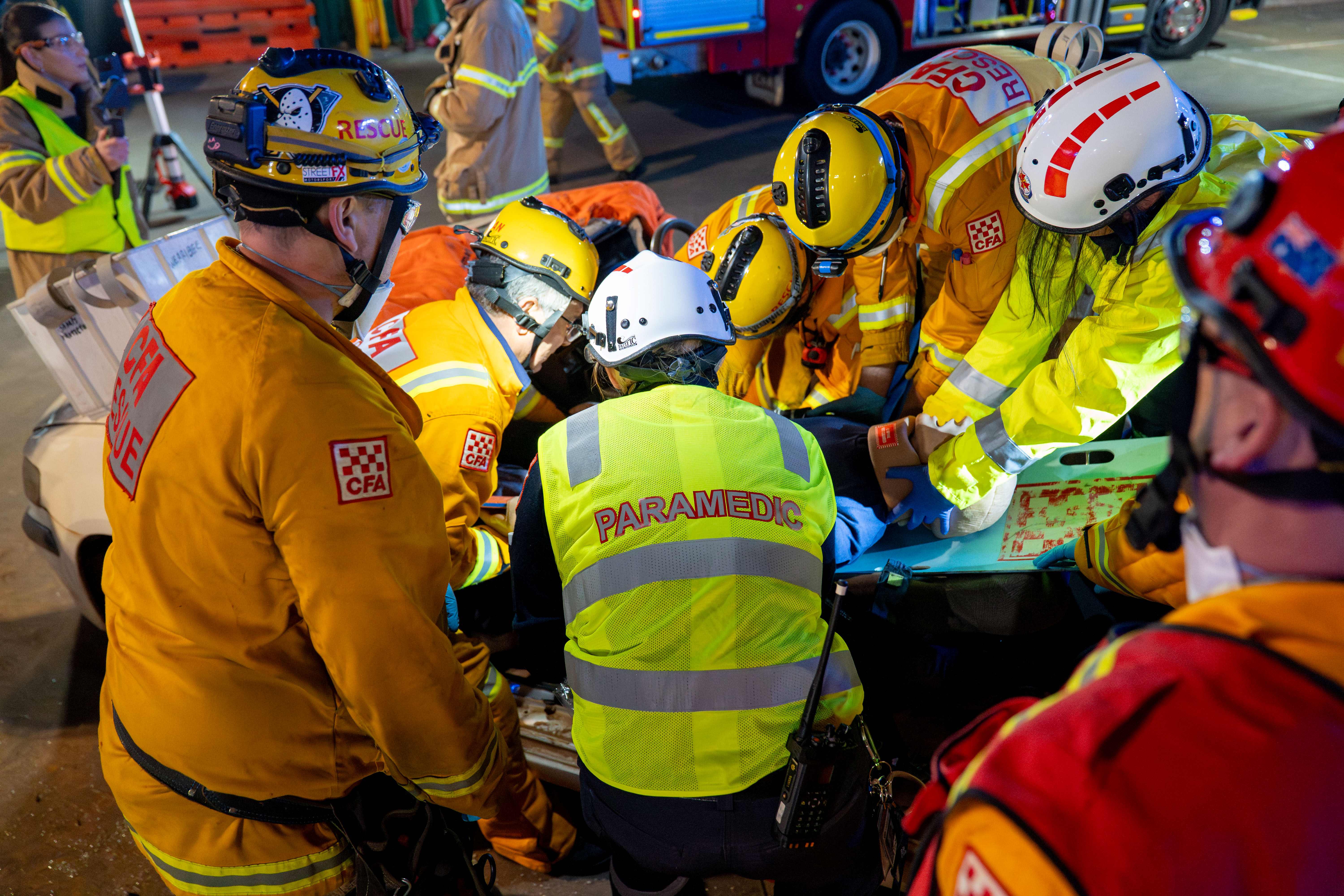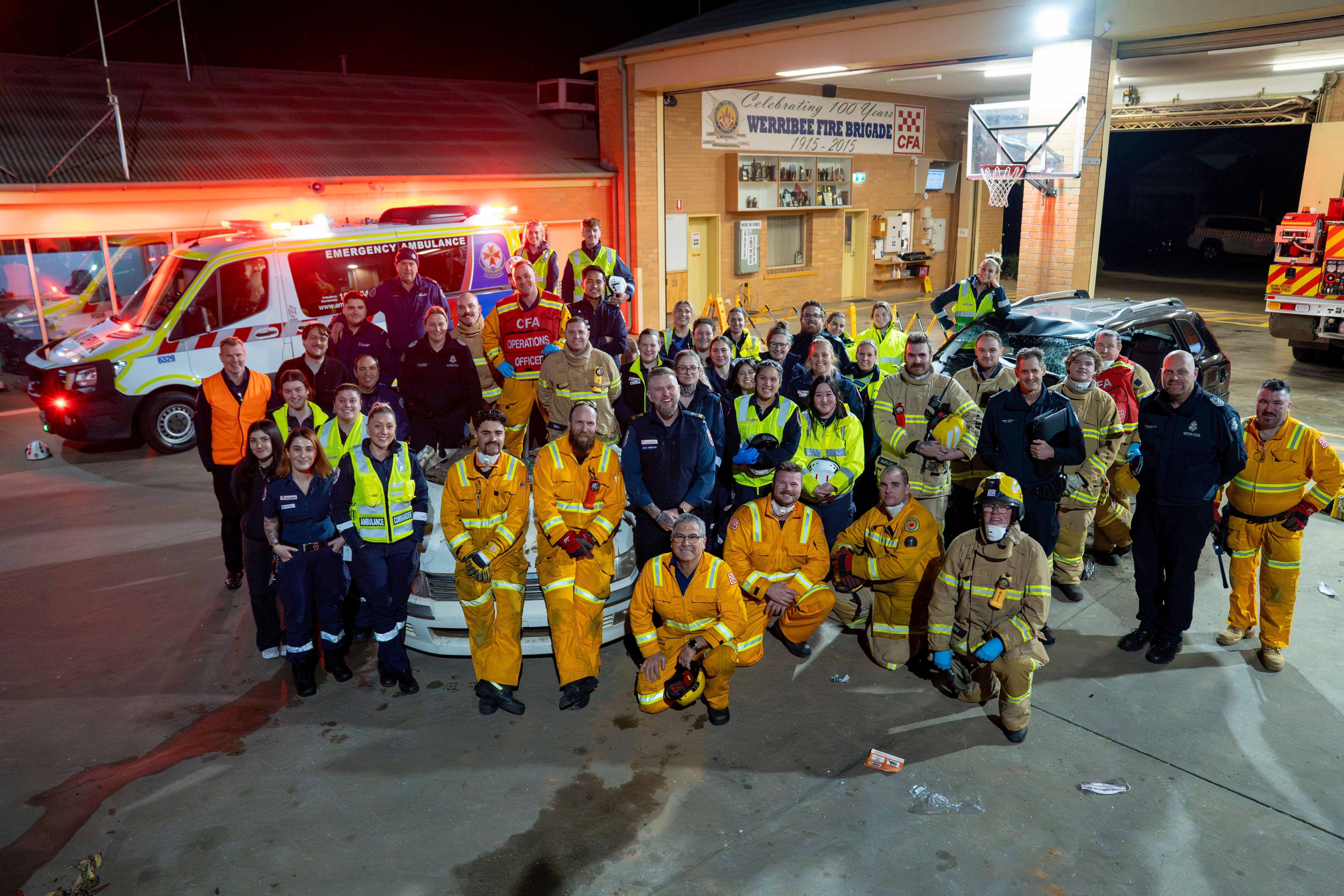Ambulance Victoria (AV) paramedics have taken part in an annual road crash rescue simulation exercise alongside emergency services colleagues, to ensure crews are ready to provide best care.
The multiagency training in Werribee, now in its eighth year, brought together representatives from AV, Country Fire Authority (CFA) and Victoria Police, with participants responding to two scenarios mimicking real-life motor vehicle crashes.
AV Acting Emergency Management Planning Coordinator (Northwest Metro Region) Blixa Webster said the training is always an excellent opportunity for first responders to put their skills to the test in a controlled environment.

"This annual training event gives paramedics and our emergency services colleagues the opportunity to practise critical skills in a setting that is as close to the real thing as possible," Blixa said.
"These high-fidelity exercises took place in real time, in the dark, with the real equipment, making sure to simulate realism in every aspect.
"Even in a simulation, road crash rescue incidents are confronting and stressful. It's a great chance for paramedics to experience that, practise working as a team with other emergency services and, at the same time, receive feedback on what they're doing.

"I believe that when your metal is tested, you're only going to fall to your level of training, so taking part in opportunities such as this is the perfect way to make sure we continue to provide best care to patients at real road incidents when it matters most."
The evening included a presentation on AV's response to road crash rescue, workshop stations for low frequency skills, and the practical scenarios.
The training scenarios saw emergency services respond to two-vehicle collisions that left patients mechanically trapped, with critical, life-threatening injuries.

"Managing the complex elements of entrapment and patient criticality required collaboration between paramedics and firefighters to access and treat patients before they could be extricated and transported to hospital," Blixa said.
"These patients often need surgical intervention to ensure long term survival, so it's incredibly important we exercise these scenarios to ensure we all know our roles."
Each mock patient - an AV mannequin - had a facilitator assigned, to help participants understand their findings and the impact of their decisions and care.







